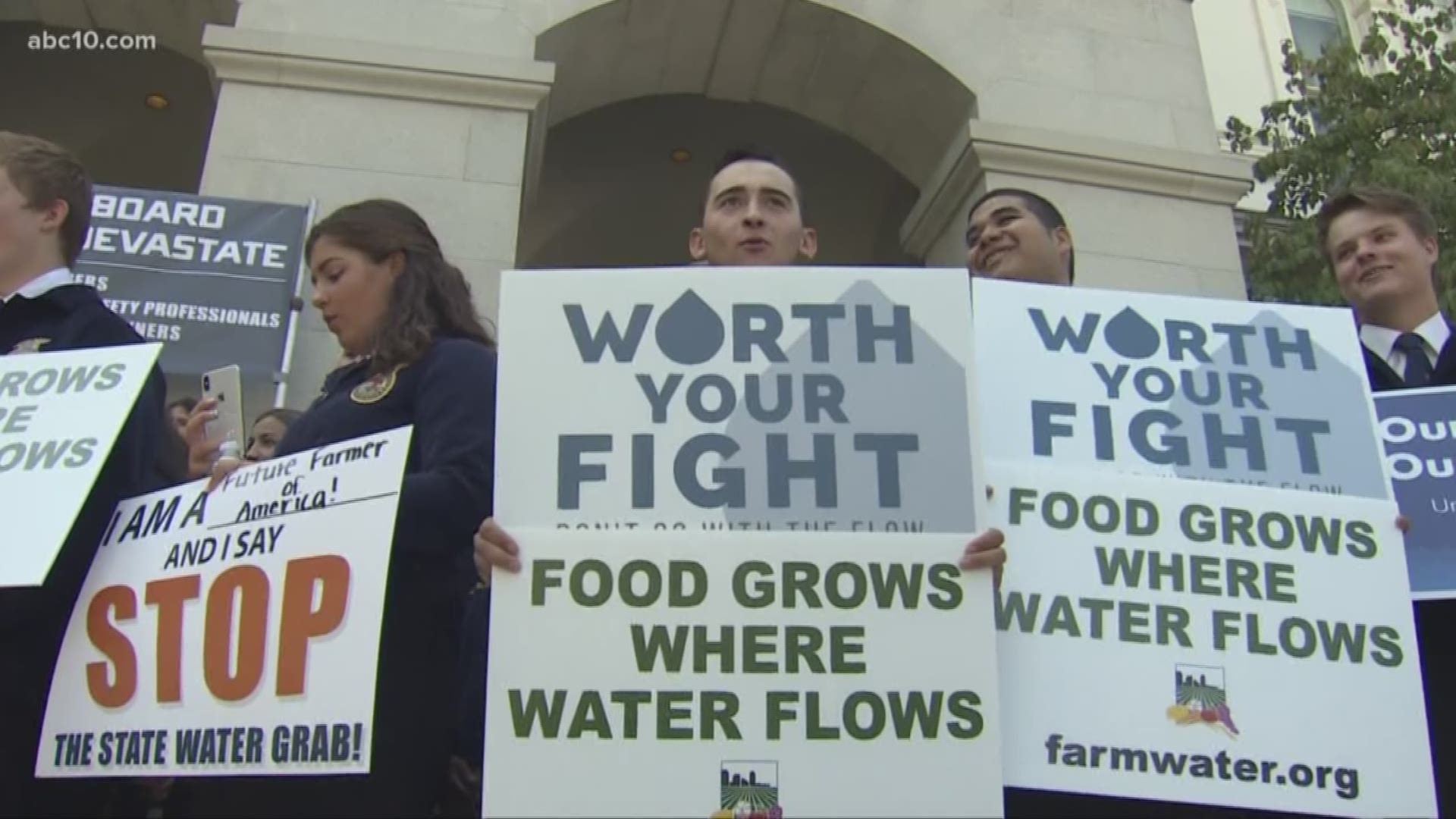The State Water Resources Control Board approved a controversial river flow proposal that has some farmers angry, water agencies upset, and other agencies still hopeful for a compromise.
On Wednesday, State Water Board approved a proposal that would dedicate around 40 percent of unimpaired flows from three tributary rivers of the San Joaquin River for the benefit of fish, wildlife, and the environment.
While the vote has angered some farmers in the region who have their livelihoods at stake, the Board’s vote also left some hope that a compromise might still be reached. Tuolumne River water users and leadership with the Department of Water Resources (DWR) and Department of Fish and Wildlife (DFW) put together a voluntary agreement, the result of the State Water Board postponing a vote the month before to allow for those talks.
Even though the voluntary agreement was on the table for the water board to approve on Wednesday, they opted to adopt the river flow proposal. Their proposal is meant to incentivize agreements that offer habitat restoration and other measures that support fish and wildlife with more than just unimpaired flows.
Water board staff will be working with stakeholders on a broader voluntary settlement agreements will be evaluated next year to see if the agreements can provide reasonable protection for fish and wildlife.
What comes next?
Since the river flow proposal was revealed, water agencies have been threatening legal action if the proposal went through as is.
Turlock Irrigation District (TID):
“We are disappointed in the action the State Water Board took yesterday,” said Brandon McMillan, spokesperson for TID. “We believe the agreement on the Tuolumne River, which could have been implemented immediately, was far superior to what the Board adopted.”
The water agency will have 30 days to challenge the river flow proposal and will be evaluating their options. TID has previously said that they would consider legal action if the proposal went through, and potential litigation was factored into their budget planning for 2018 and 2019.
Modesto Irrigation District (MID):
MID was also prepared to pursue legal action if the water board approved the river flow proposal as it was. They had worked with TID, the City and County of San Francisco in discussions for a framework that they believed met the needs of their customers and the environment.
But that agreement, which could have been immediately implemented, was not approved on Wednesday.
“We’re disappointed by the Board’s action to approve their Substitute Environmental Document and moving forward, we’ll continue to take any and all measures to protect our water supply and the communities we serve,” Modesto Irrigation District said in a statement.
“We’re still evaluating the State Water Board’s approved resolution and the impacts it will have to our customers. MID will continue to advocate for the voluntary agreement framework presented as it can achieve sustainability and reliability for all – our environment, our customers and our communities.”
City of Modesto:
"The city is looking at our options with Modesto Irrigation District and working with our legal counsel," said Modesto spokesperson Thomas Reeves. "This decision greatly affects the City’s surface water supplies and the City will take all necessary actions to ensure that the City protects all its water supplies."
MID treats and delivers drinking water to the City of Modesto. If there is a reduction in the amount of surface water that MID has, it will affect Modesto residents.
According to figures from MID, the proposal could leave more than 250,000 people and 6,000 businesses without a sustainable water supply.
The City doesn't know if the impact from the decision will be immediate, but the proposal is expected to take a year to implement.
"This is still too new to get a sense of what the total impact to the City will be," Reeves added. "It all depends on the weather and if the region is in a normal wet year or drought. We do know that less surface water means we will need to pump more groundwater to meet customer demands and potentially more water restrictions if supplies are limited."
City of Turlock:
As part of the Stanislaus Regional Water Authority, Turlock is involved in a $288 million project for a surface water treatment plant. This would give them an alternative source for drinking water and help their groundwater supply.
Although the project will need water from the Tuolumne River, plans for the project will not be halted or impacted at this time.
“The project has been planned knowing that this could be a possible outcome,” said Turlock Municipal Services Director Michael Cooke in an email to ABC10.
That planning means that the Bay Delta Water Quality Plan update will have little effect on the amount of water available for Phase 1 of the project.
For Cooke, an important element in this process is that the State Water Board has directed staff to work with stakeholders, DWR, and DFW to complete a broader voluntary settlement agreement by March 1 for northern California.
“A framework for a voluntary agreement on the Tuolumne River has already been agreed to and, if this is implemented, it would be very beneficial to any later phases of the drinking water project,” Cooke added.
ABC10 Presents "California Wildfires: Grieving Together": Redding firefighters talk about how the loss of one of their own during the Carr Fire has changed them all.

